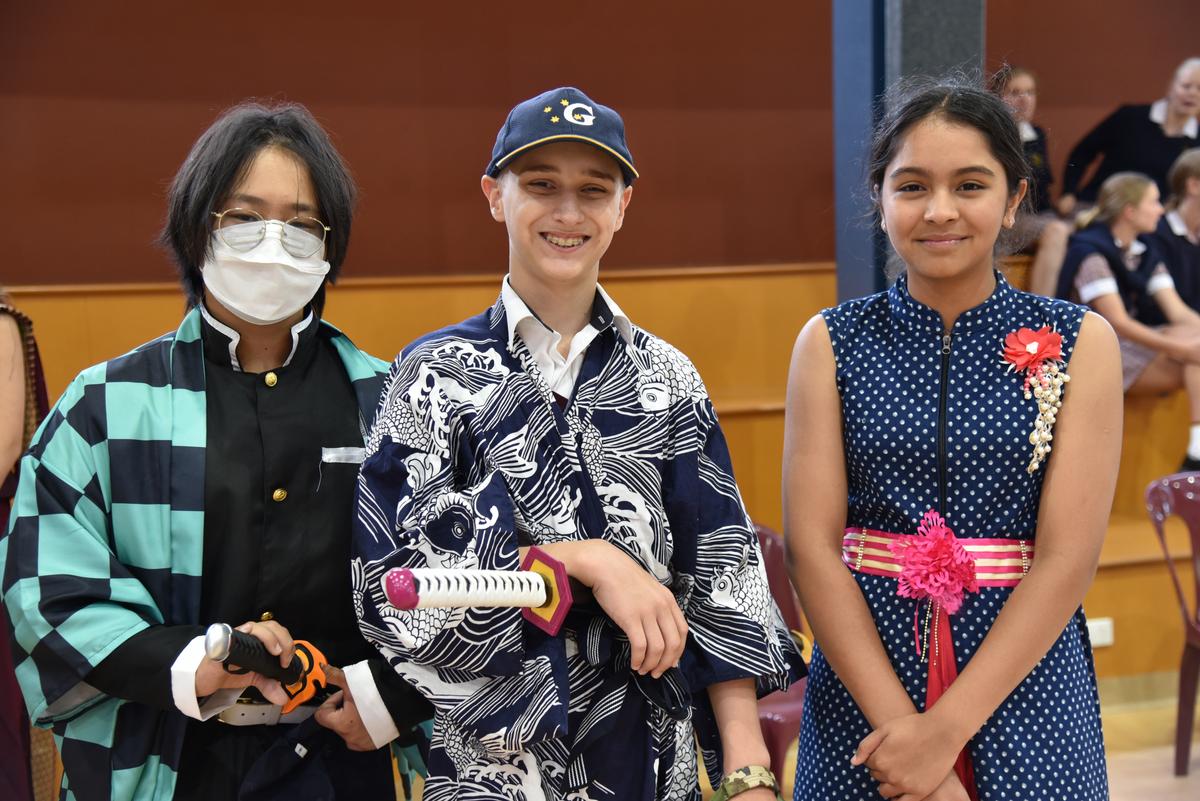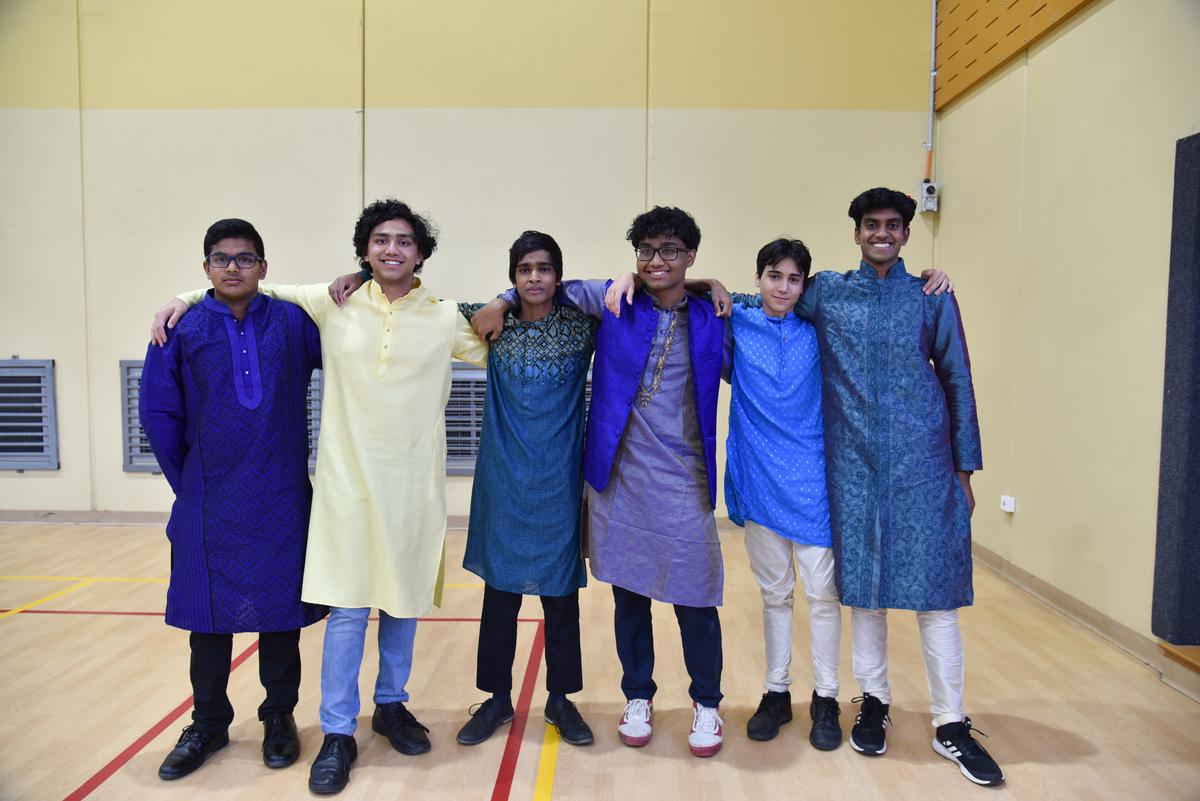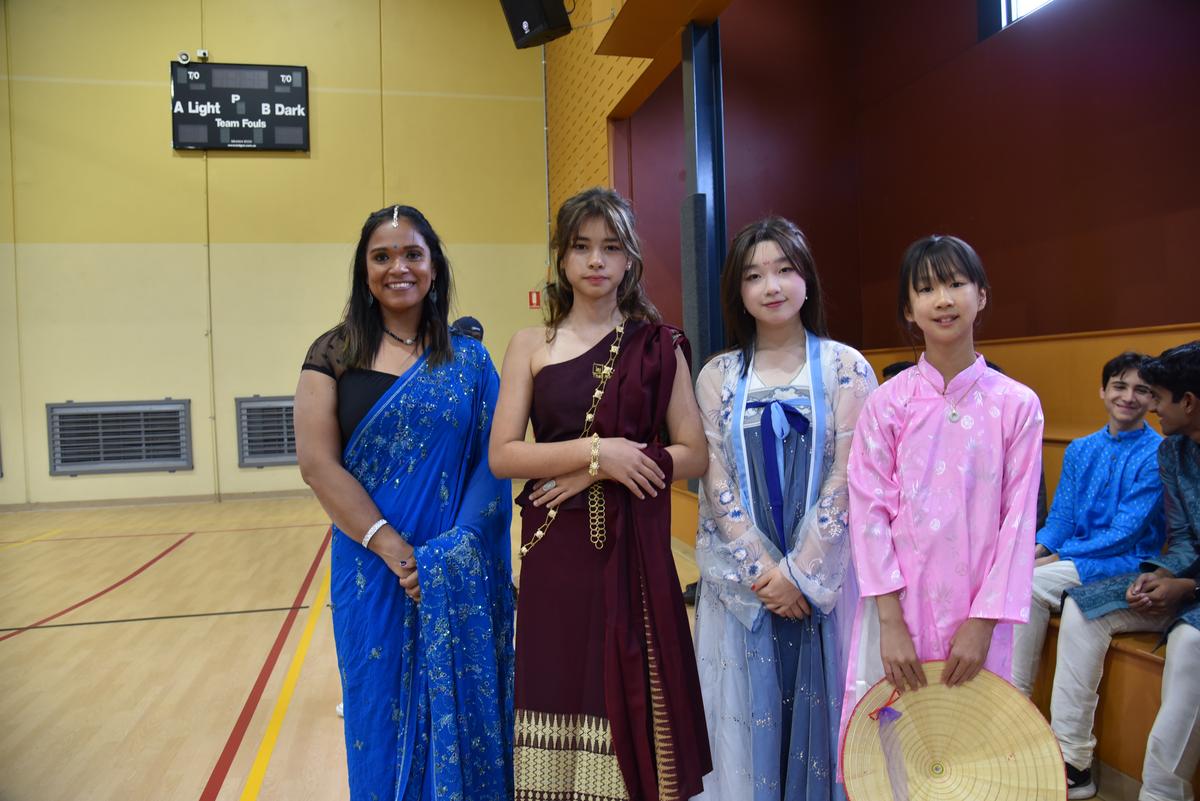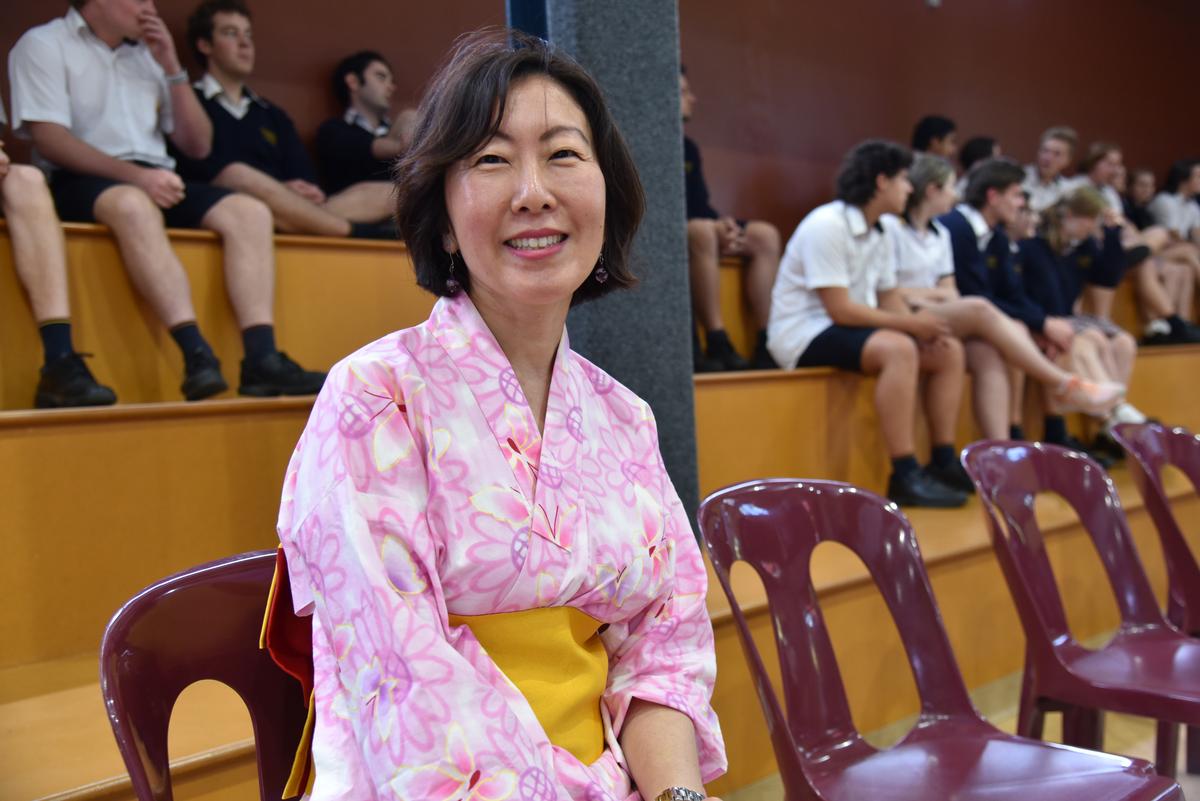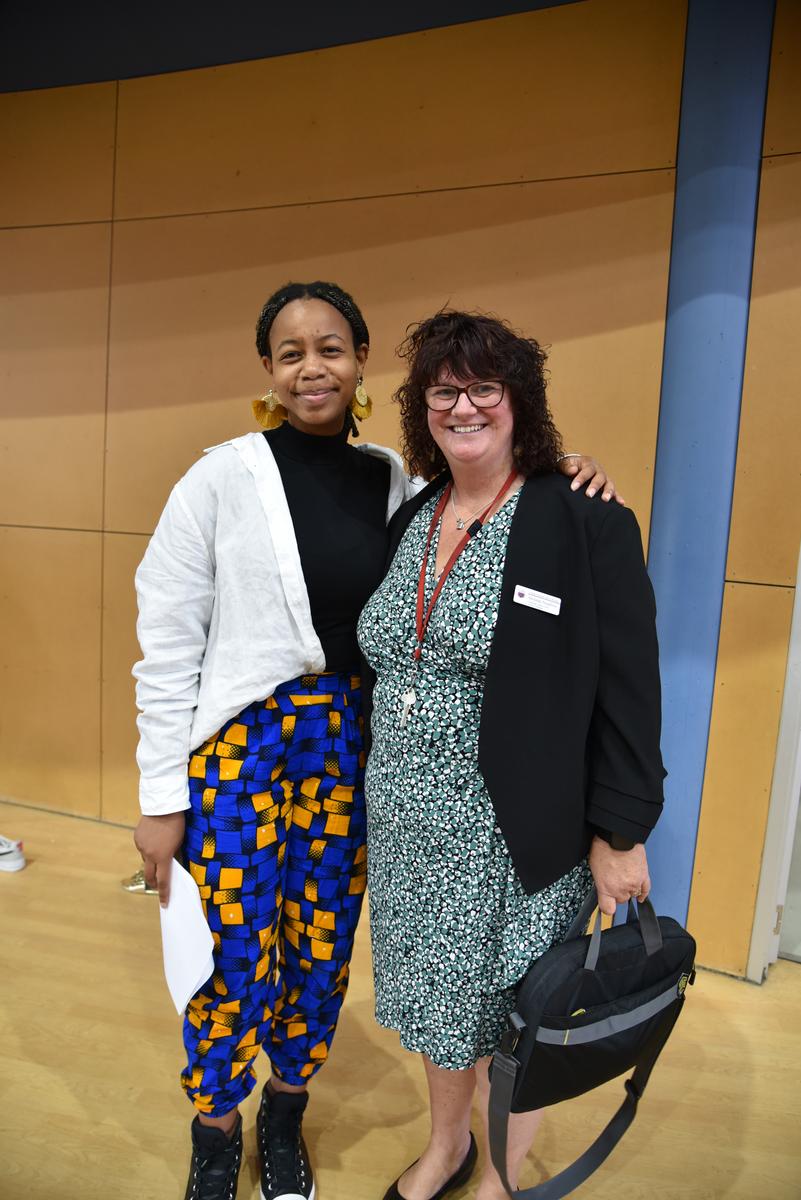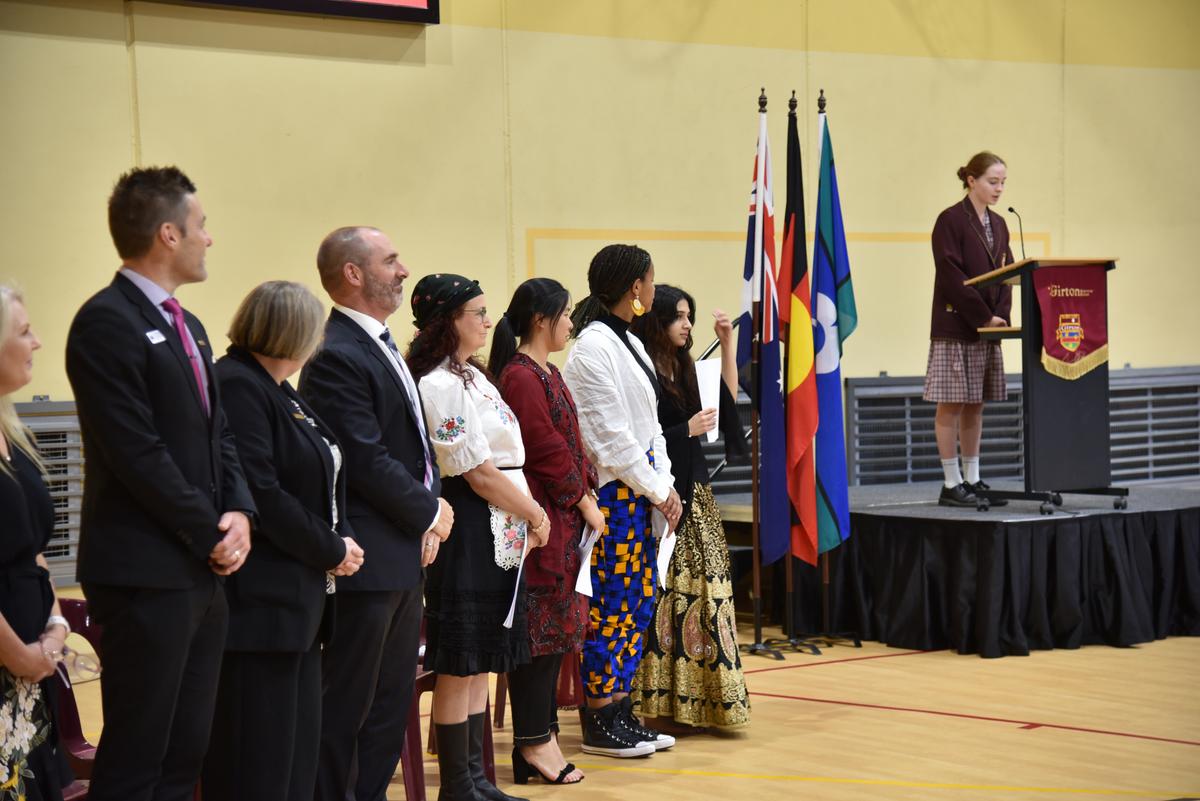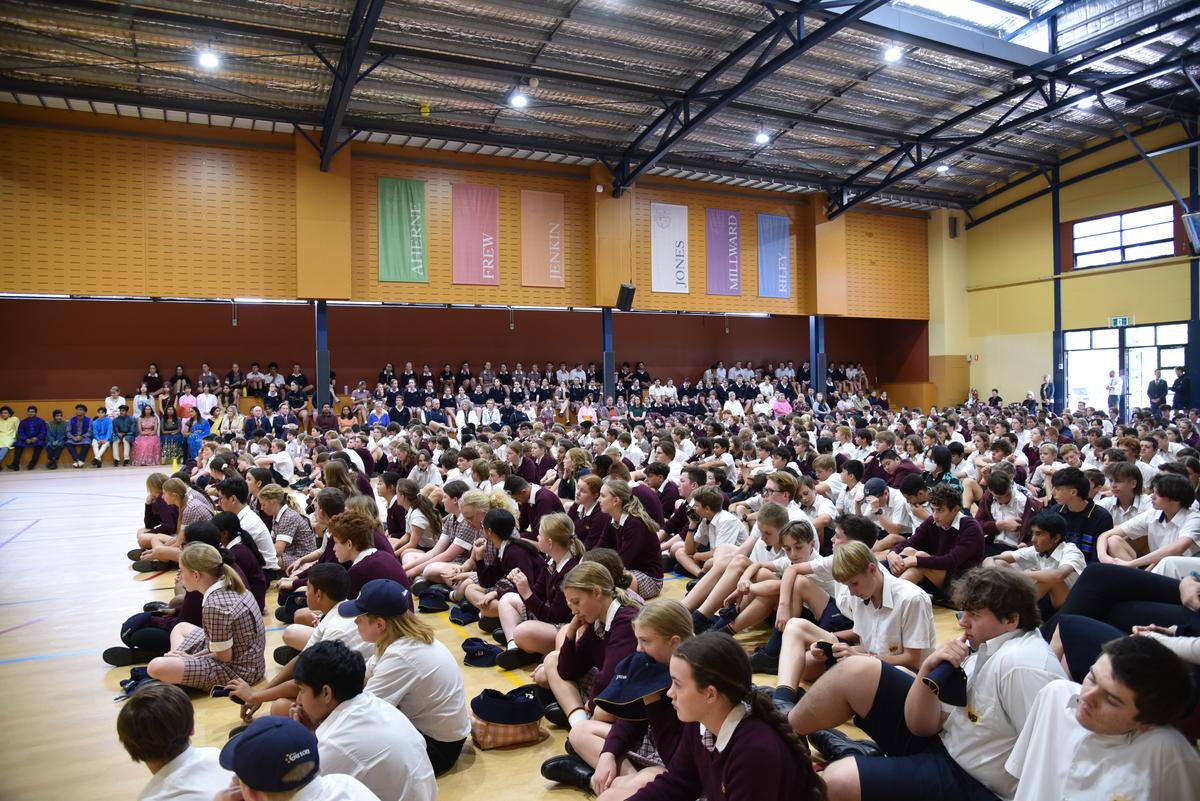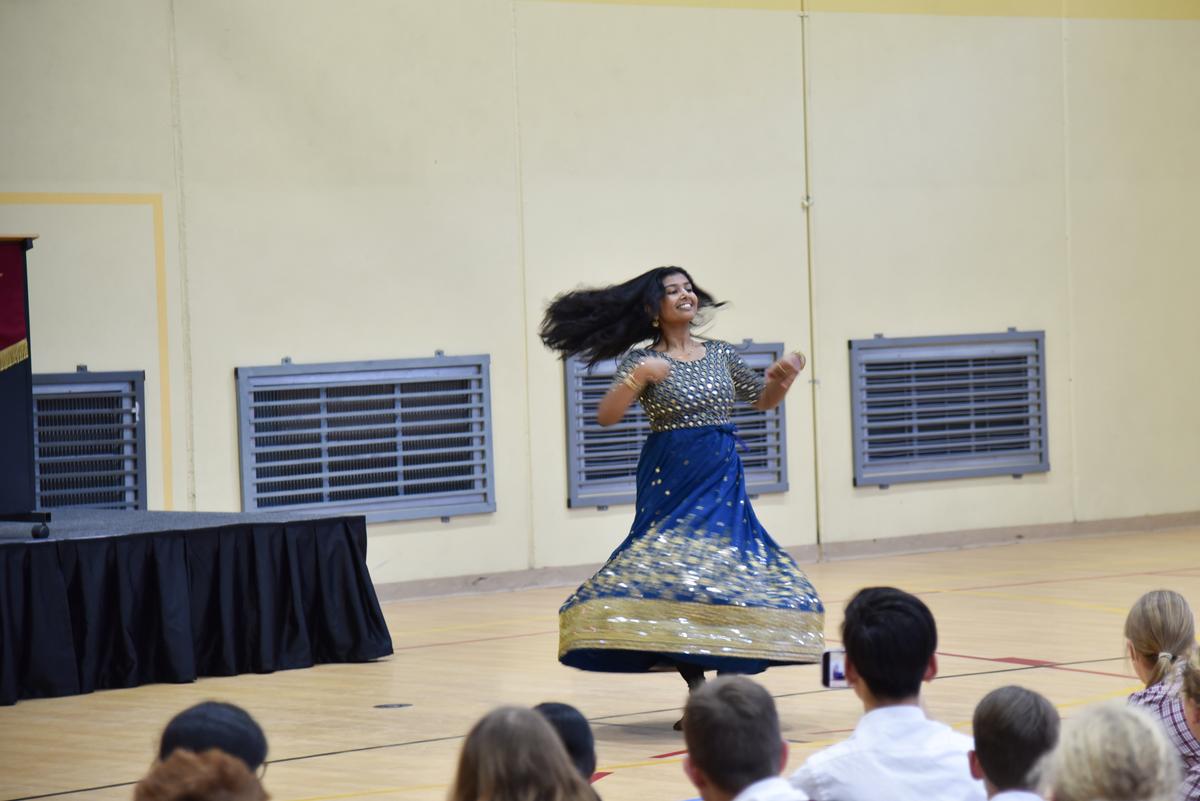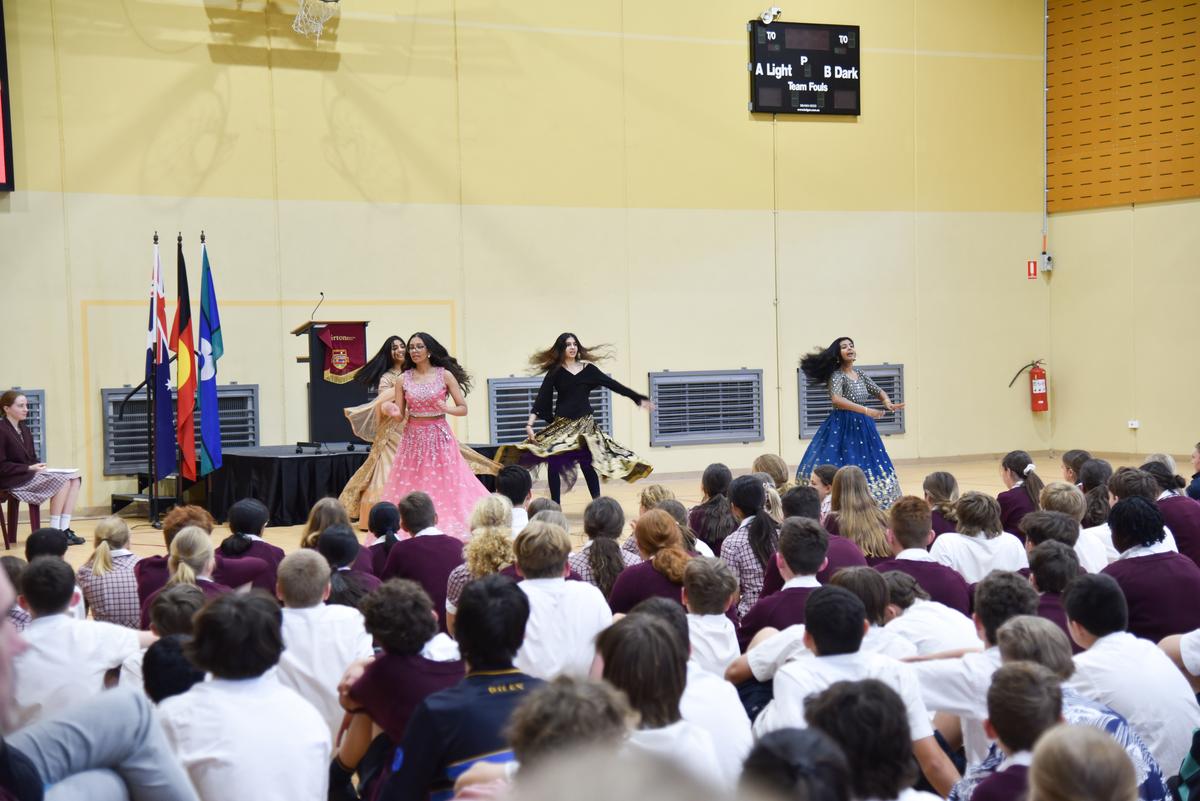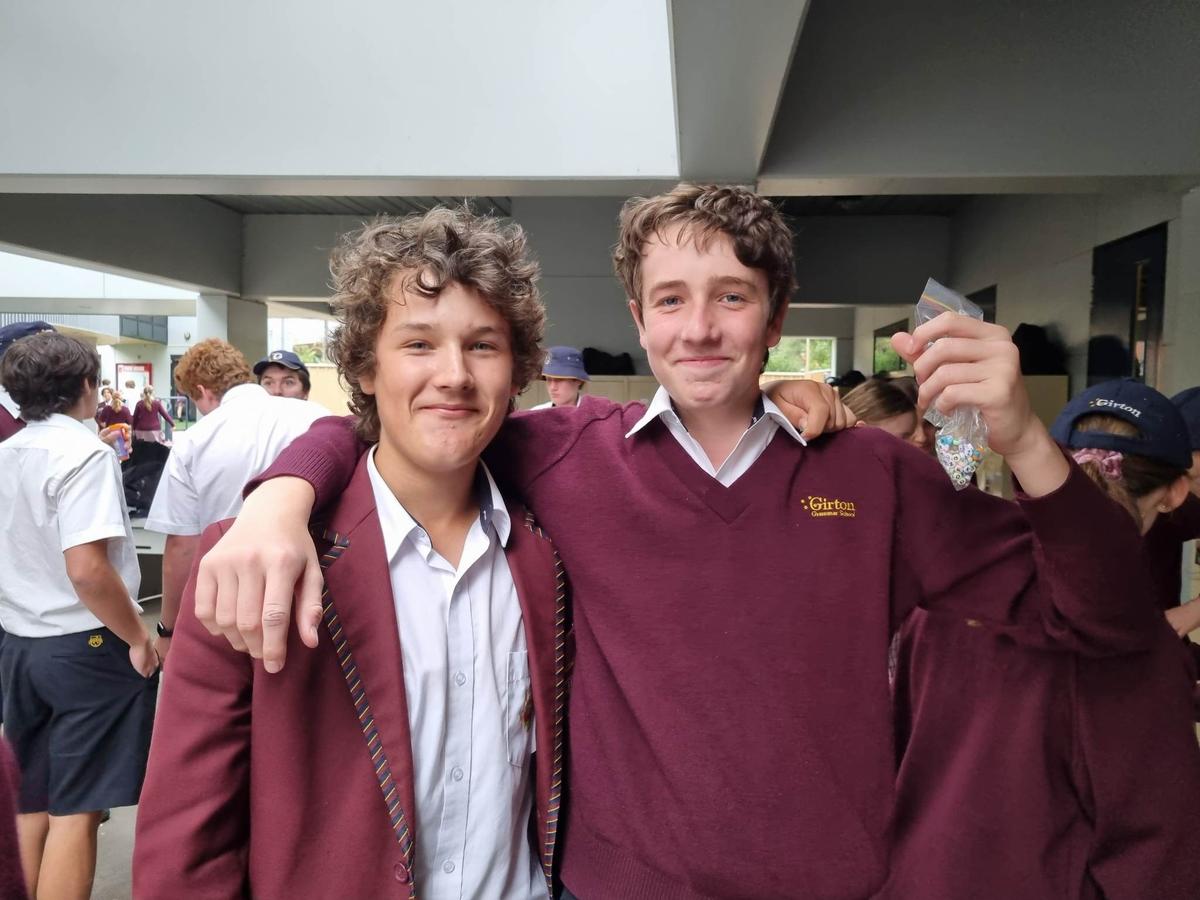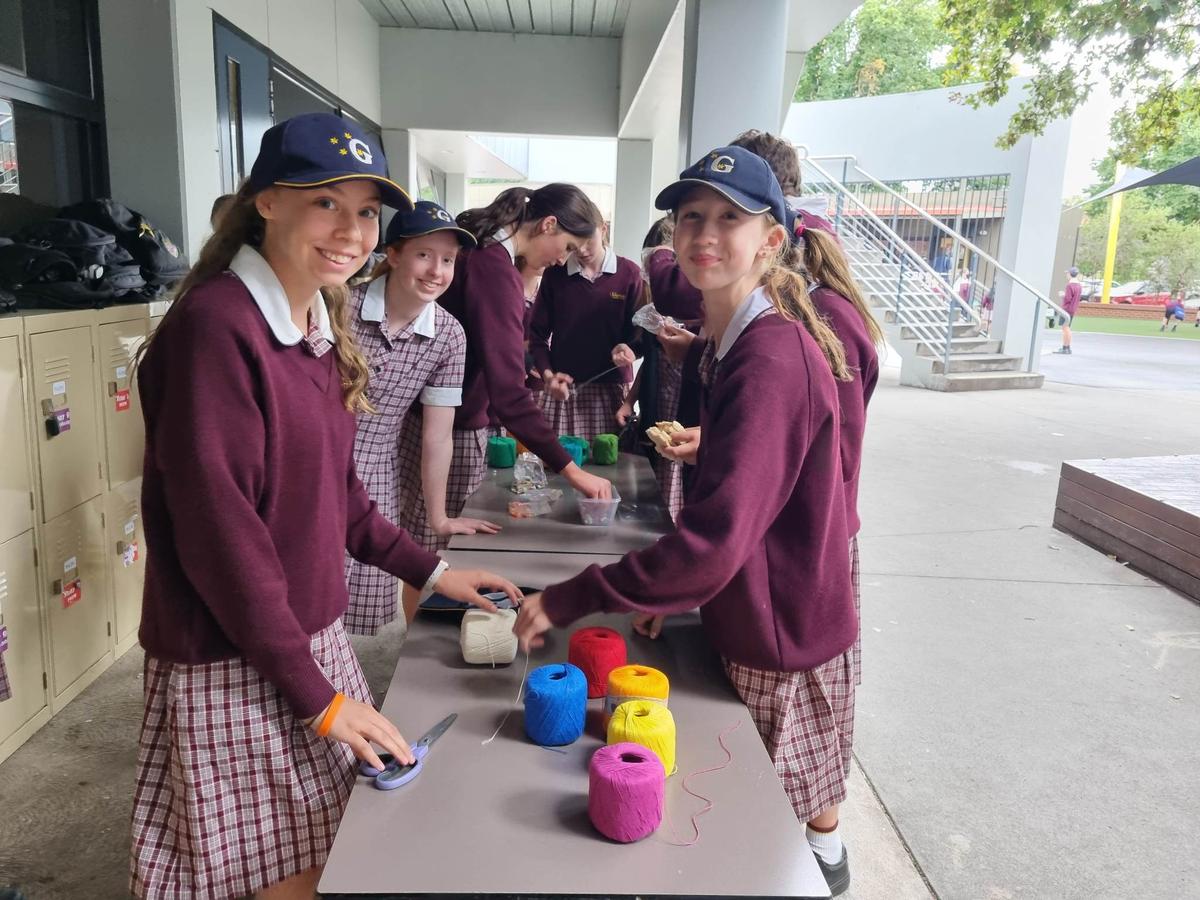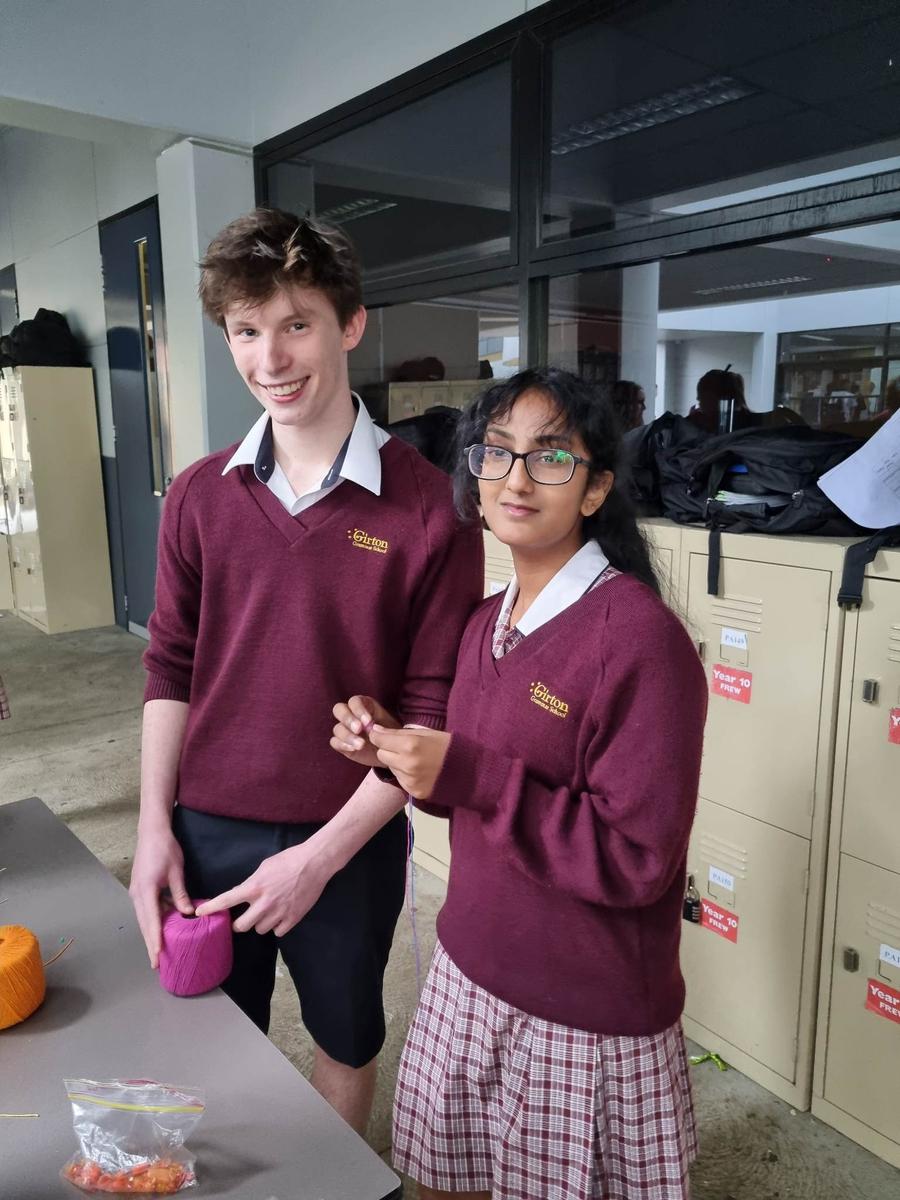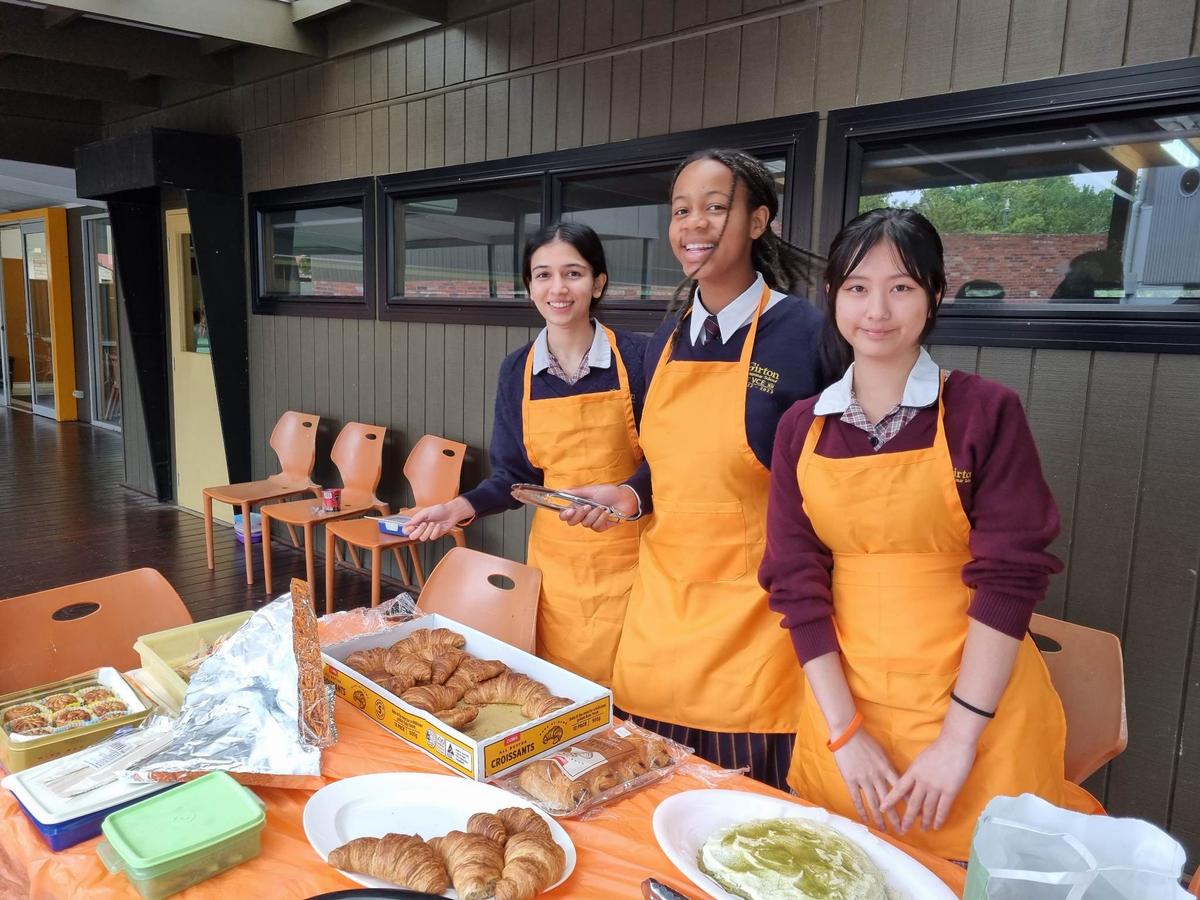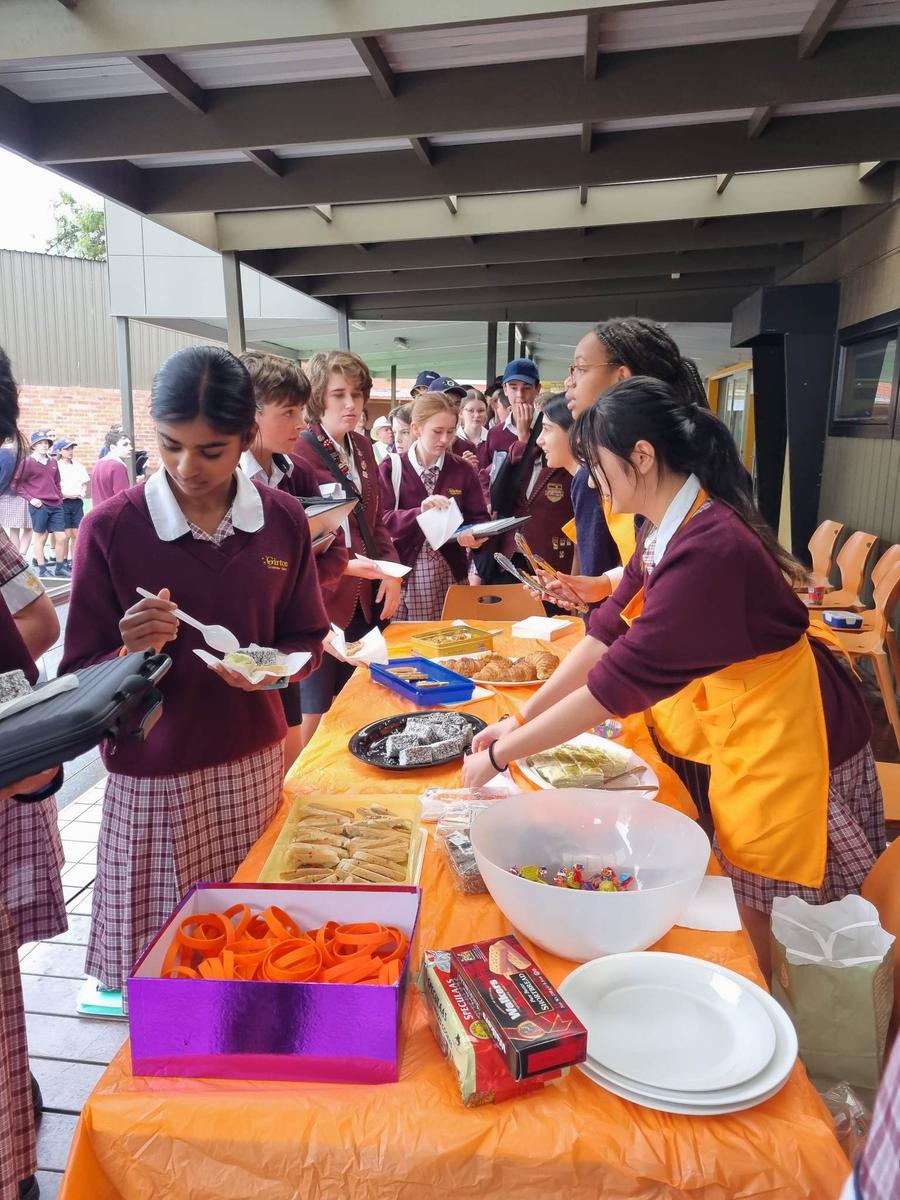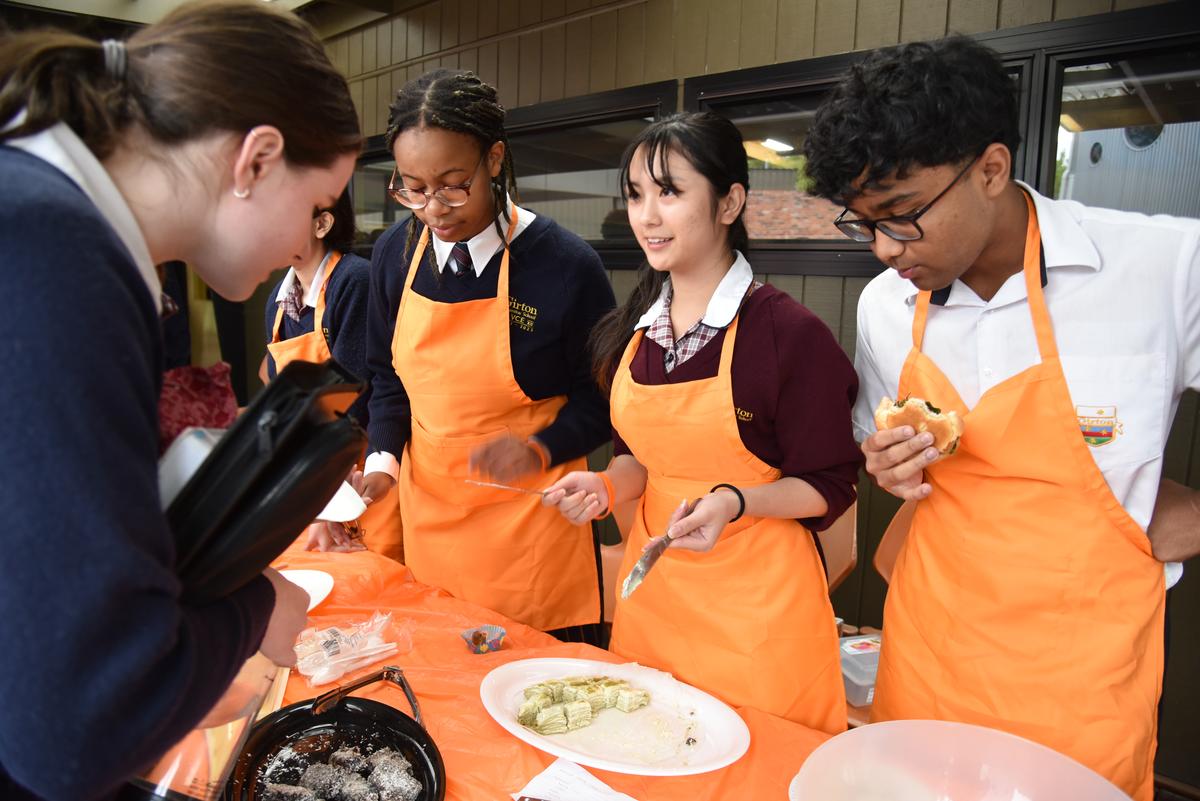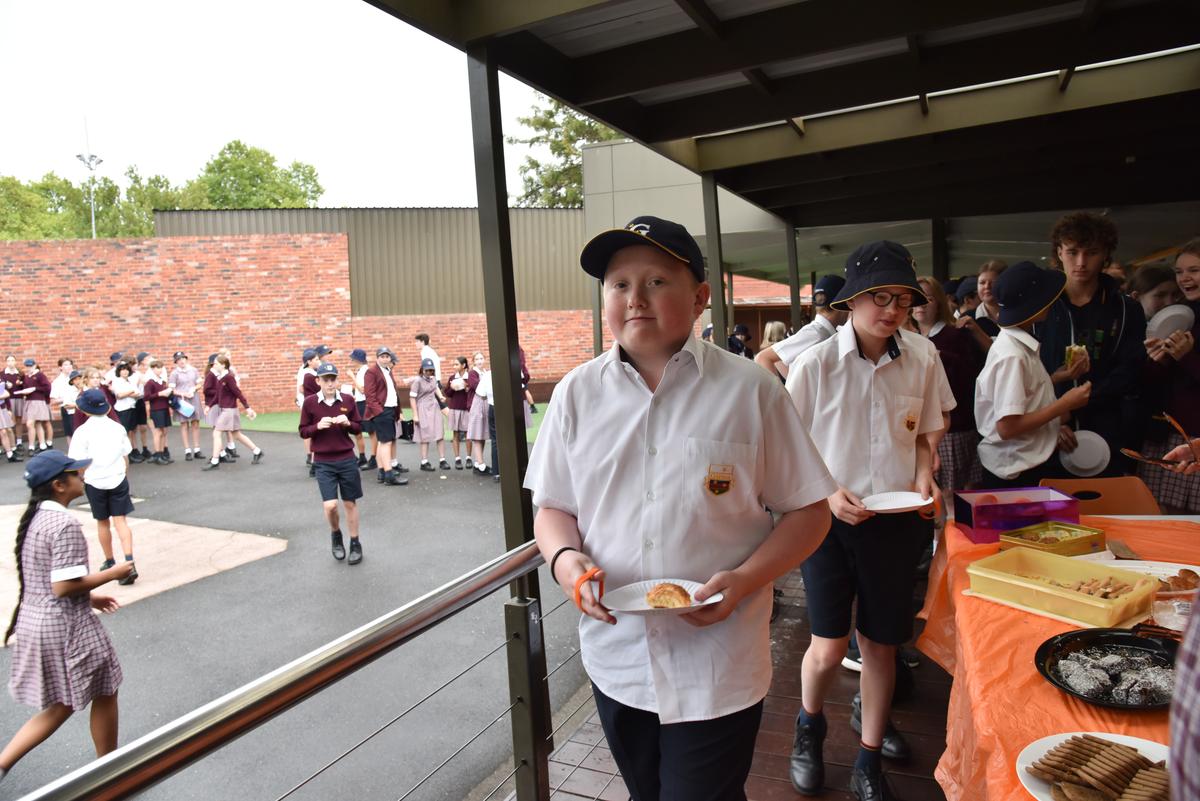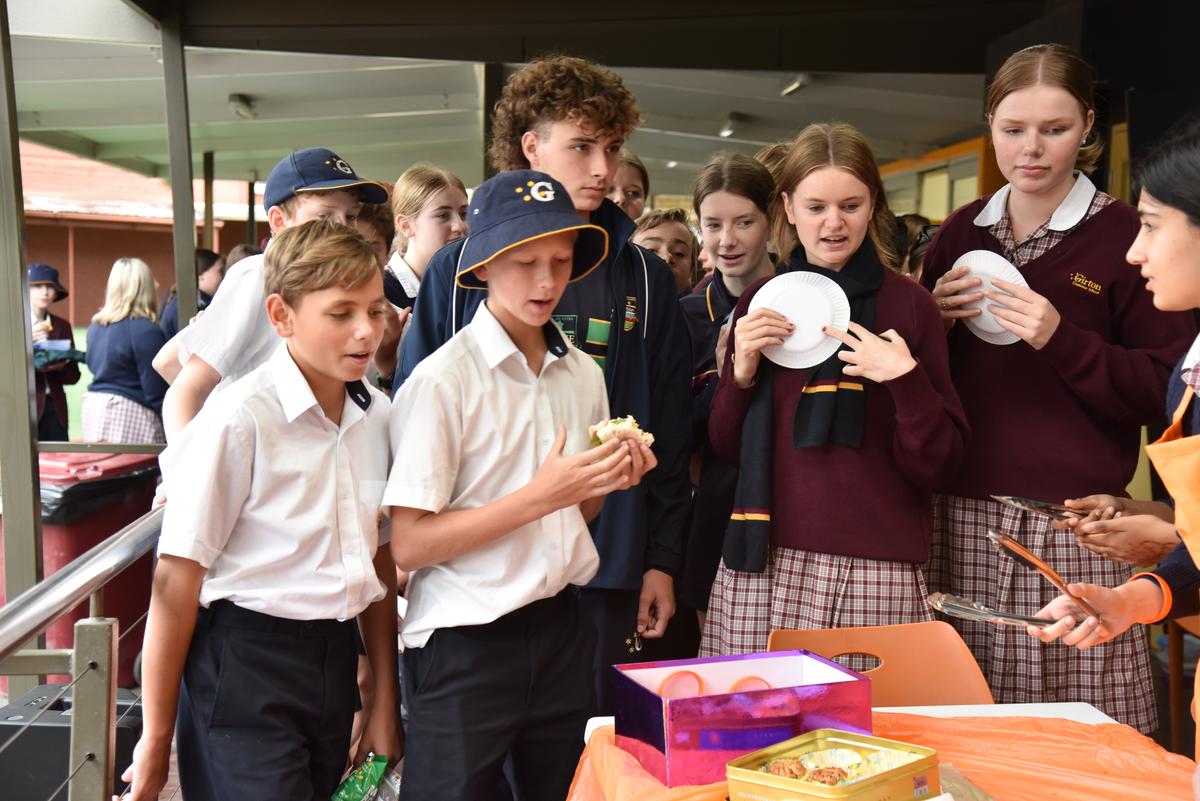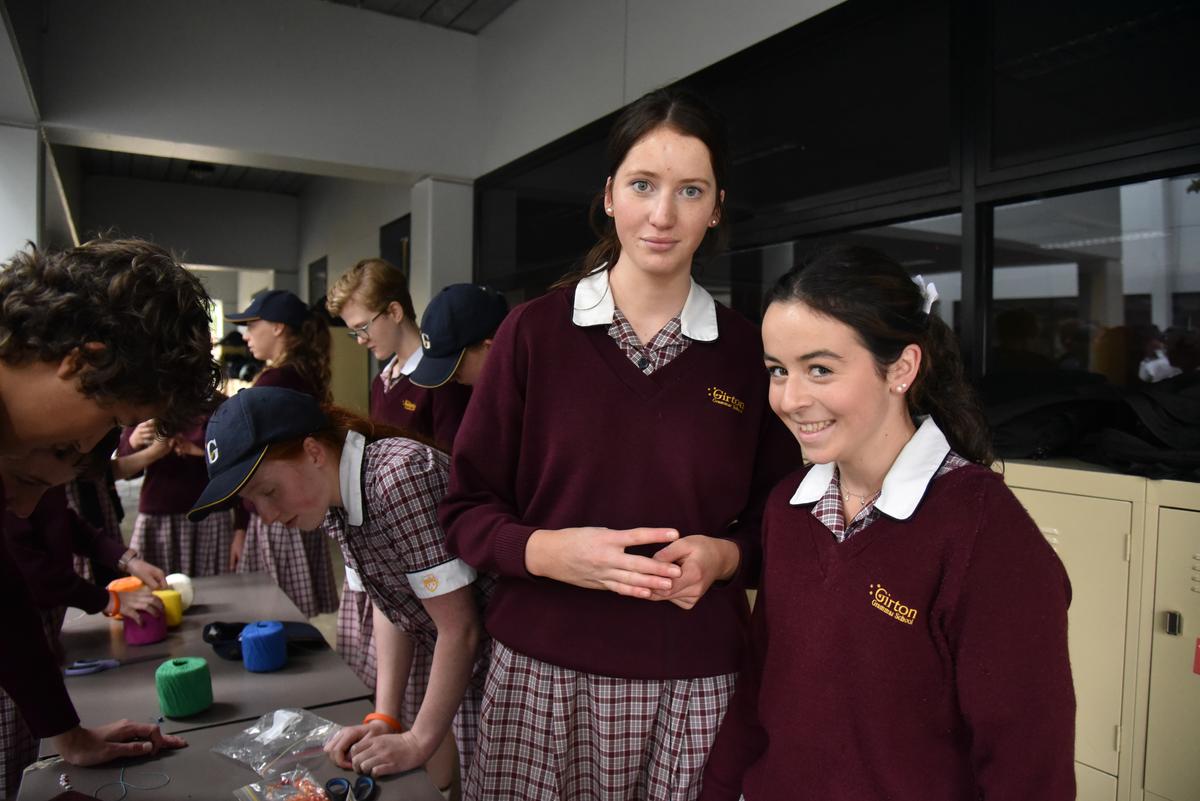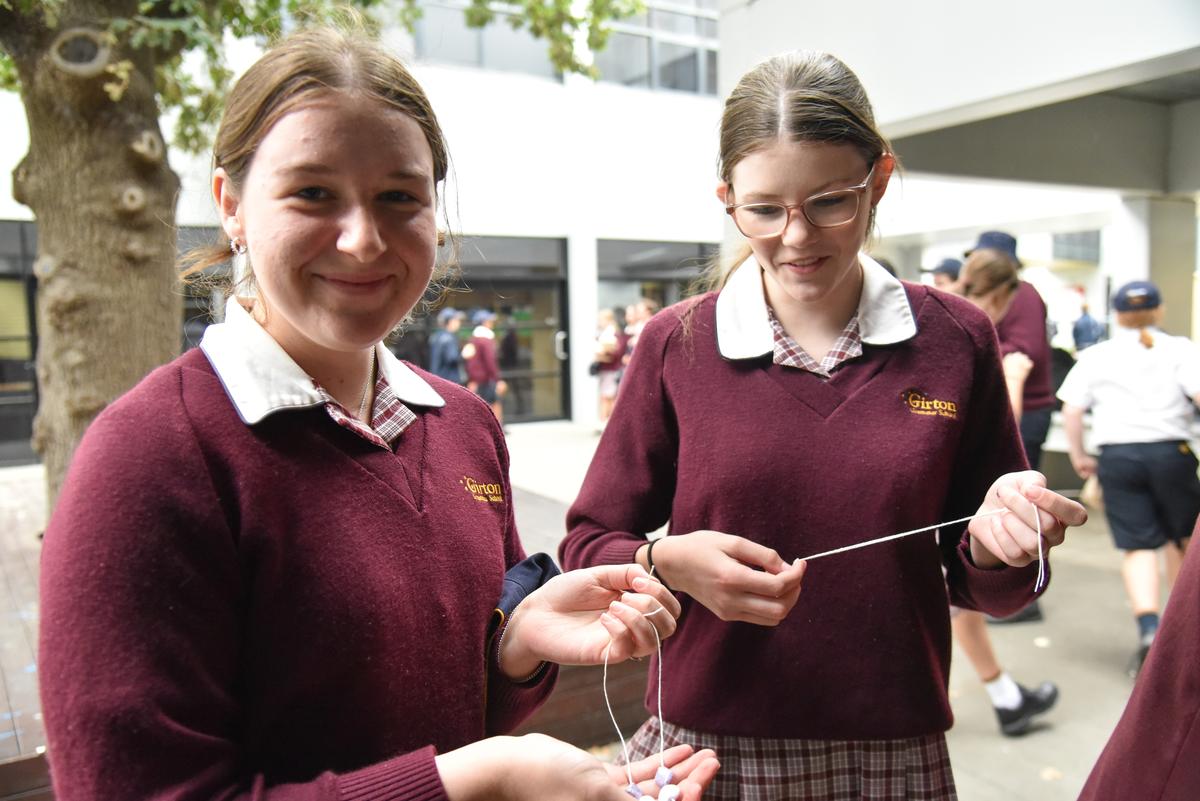Harmony Week
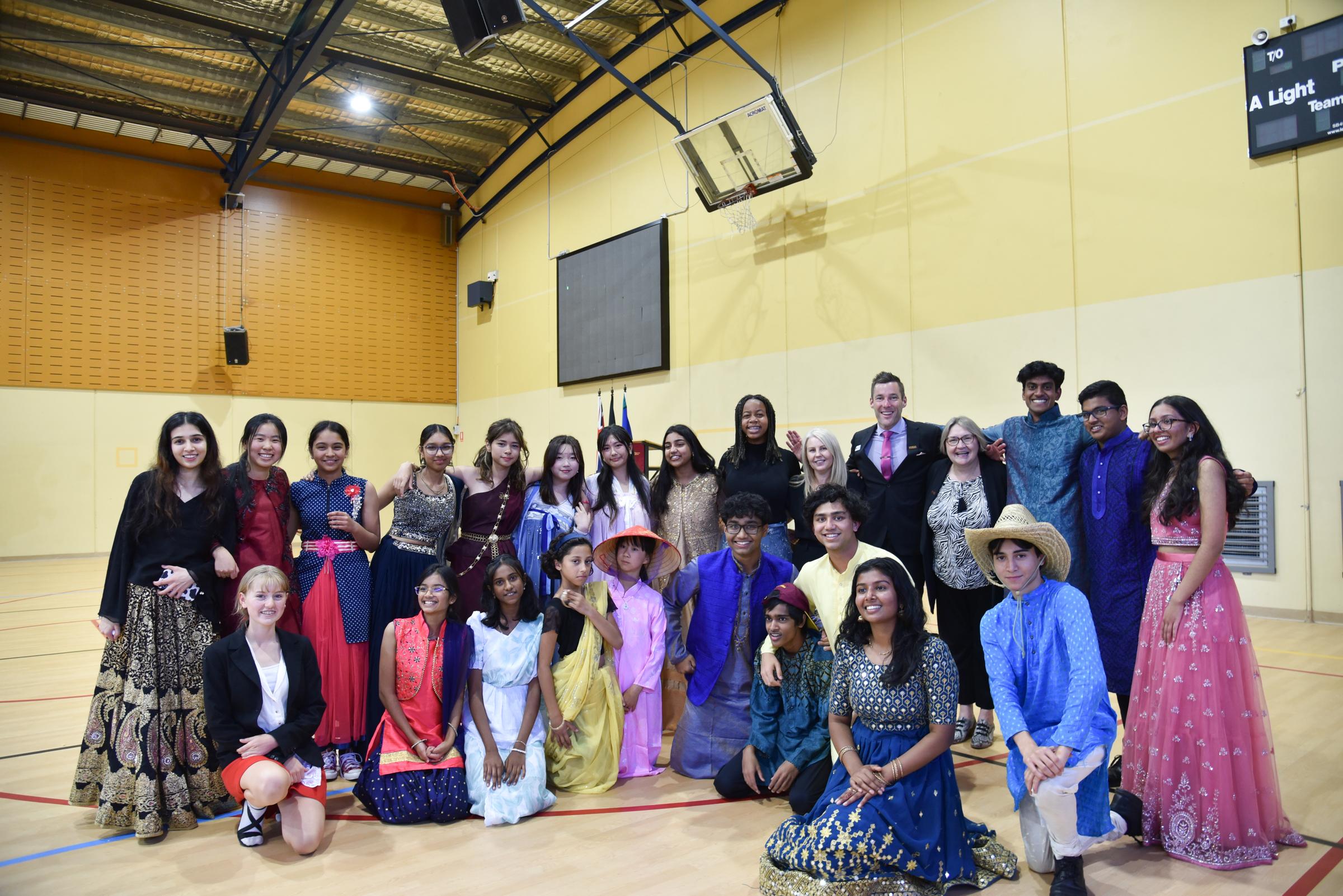
Girton Celebrates Harmony Day 2023
This week the Senior School kicked off Harmony Week with a truly joyful and inclusive celebration where staff and students shared their cultural backgrounds through food, clothing, music and dance.
At Monday’s Senior School Assembly we had a cultural dress parade with representatives from India, Sri Lanka, Pakistan, China, Japan, Vietnam, Italy, Hungary, Zimbabwe, Mauritius and Thailand. This was followed by an insightful speech about the difference between cultural appreciation and cultural appropriation, presented by Willow Barnett (12 Jenkin). To close the Assembly our multicultural dance troupe shared their various cultures through dance.
On Tuesday, Girton Community Action Group (GCAG) continued to celebrate diversity with a “Desserts from Around the World” sampling buffet at lunchtime. Music from around the world was also featured at this time while students played three hard-fought rounds of International Music Bingo. Congratulations to our winners who collected a $5 canteen voucher for their efforts.
Round 1 Winner: Toby Salter (7 Riley)
Round 2 winner: Sayu Jayakody (7 Jones)
Round 3 winner: Emily Currie (7 Riley)
This week has been a wonderful representation of the valuable contribution that diversity brings to our society and we thank all of the staff and students who shared a part of themselves and their culture with us this week.
An excerpt from the speech delivered by Ms Jinari Mountain at the Harmony Day Assembly on Monday:
Today I want to acknowledge and thank all of your ancestors. As Inuit Grandfather Maynard Eaken used to say to me, “your ancestors brought you here today”.
Welcome to Harmony Day.
I believe that we are all learning about culture, diversity, difference, respect, inclusion and living in harmony. Culture means different things to different people, and as my Year 9 Sociology students would know, we can draw distinctions between popular culture, high culture, sub-cultures, work and school cultures, family cultures, sporting cultures, ethnic cultures and more. Culture is the shared values, beliefs and behaviours of particular groups. Culture is not static it is a constantly evolving and changing thing.
National Harmony Day was first celebrated in Australia in 2000. This is the United Nations International Day for the Elimination of Racial Discrimination (commemorating the Sharpeville massacre in South Africa in 1960). Since then, the day has been a focal point for celebrating different ethnic cultures as a way of promoting harmony and belonging for all ethnicities in Australia. The 2021 census revealed that now over 51% of Australians are either born overseas or have at least one parent born overseas. Australia is a successful multicultural country, and yet ethnic minorities continue to experience racism.
Showing respect to people with different cultures seems like it should be a simple thing, but sometimes it is not. Different people have different ideas about what is respectful and disrespectful, and also different ideas about what culture is. Balancing all of these different views is sometimes difficult, and can involve ethical dilemmas.
Our cultural dress parade is not the same as the Junior School International Day. While that is a positive celebration of different cultures, we had some Senior School students raise important concerns about cultural appropriation. Because we are celebrating Harmony Week, my idea was that we create an opportunity to learn about people’s lived experiences of ethnic cultures, and to limit the dress parade to this. I also felt tempted to cite some statistics about racial discrimination in Australia. However, some wise students here have engaged me in long conversations over the weekend and pointed out that the day's main purpose is to foster harmony, not division. And for them, all the ways that people want to express culture positively should be included so that everyone can participate. What is really great is that conversations about culture and diversity are happening.
Sadly, I have heard that some people felt uninspired about the day because they think that they have no culture – that those coming from multigenerational Australian families have no culture. I say to you, you do have culture. It may not be expressed in a traditional ethnic dress. But dig deeper. Think about the food that you eat, the language that you speak, and the things that you celebrate. Christmas, Easter, Birthdays, Weddings, Funerals, table manners. …. These are all aspects of culture.
Finally, I want to share something Raminjerri Elder Uncle Karno Walker taught me: that in order to know myself, I need to know three things – my country – my ancestors – my elders.
Country: He said, if you are born here you belong to this country. He did not mean the nation that is Australia, but the actual land itself. Connect to the place where you live. Learn about it. Culture comes from deep connections to landscape. Think about farmers wearing the Akubra hat and RM Williams work boots – developed from materials in this land for the conditions here.
Ancestors: Find out who your ancestors are. Your grandparents and great-grandparents – and who came before them. What are their names, where did they come from? What did they believe in?
Elders: Who are the older people you trust? Who can you ask for advice and support. Who can tell you things about the past? Who has lived a good and full life? Who has learned from their mistakes? What are the things that they value? These people can guide you.
Mrs Melinda Naughton, Ms Jinari Mountain and the members of Girton Community Action Group (GCAG).


